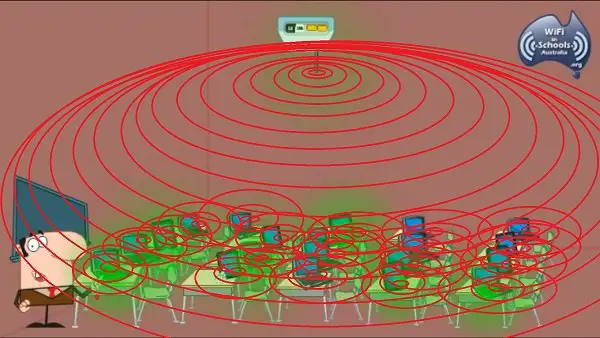Is WiFi safe for your health or harmful
I need not tell you how WiFi works. You know that WiFi signals start from the router and end up at the reception point of your WiFi-enabled device. It’s the same case with Bluetooth, cellphones, etc. However, unlike cellphones and Bluetooth, WiFi signals do not accumulate at a certain part of your body. In case of cellphones, it is the ear where you place the phone, and it is always either right or left – which is repeated per call. The more you talk, the more exposure at a certain point of your brain. The point here is, that WiFi is radio waves that may cause problems, but since there is no fixed point of your body, touching the devices all the time, the risk is quite low. If you carry your smartphone to your bed and keep it near your head at night, it may create problems due to cellular signals. But when there is some distance between your body and device, the risk becomes lesser. Read: How to create a Mobile Hotspot in Windows, via its Settings.
Dangers and Health Hazards Of WiFi Signals
I will not say WiFi is completely safe, as it does employ harmful radio waves. But it is safer compared to cellphone signals that are more powerful and tend to affect the same body part again and again. Science has conducted several types of research on WiFi waves and concluded that WiFi waves may potentially cause cancer. In 2011, the International Agency for Research on Cancer (IARC) classified WiFi as “possibly carcinogenic to humans”. There are certain factors that make it dangerous and it is not easy to get out of the RF signal range. As said earlier, WiFi signals are everywhere. If you switched off your WiFi at night, you are still exposed to the WiFi signals coming in from neighbors. To see how many such networks are active just click on the connectivity icon in the system taskbar. The more the networks, the more vulnerable you are. Kids are at greater risk of possessing mental (brain) disorders as they grow up in a WiFi environment. You can reduce the risk by turning off your WiFi at night and by discouraging kids from clinging to the device for long durations. Make sure that they do not take it to bed. You also educate them that the waves are harmful so keep devices as far as possible (from the body).
WiFi safety tips
There is little you can do to keep yourself safe from the WiFi signals. As mentioned above, even if you close down your WiFi system, you are still exposed to those, coming from neighboring houses. The only solace here is that, since WiFi signals are coming from a longer distance, their effect would be lesser – just like the FM waves which aren’t that harmful. I will not ask you to go wired even though it is safer than WiFi. Rather, try to keep away from the WiFi originating points and repeaters where the signals are strong enough to damage your brain over an extended period of time. If possible turn off your WiFi at nights or when you are not using them for longer durations. Another important thing is to reduce the duration you use WiFi. Your own WiFi is stronger in your home compared to the WiFi networks around your building. Make sure you are not spending time on the same table where the router is installed. Do not sit under repeaters for long. On devices, turn off WiFi when not using it. It will not only reduce exposure, but it will save your battery also. Remember to switch off your WiFi at night when your family sleeps. NOTE: There are websites I’ve seen that show you that WiFi is fatal. But they are endorsing some kind of products that say “safe WiFi products” or “products that nullify the effects of WiFi”. They are trying to scare you into buying their products. Stay away from such claims. Excessive exposure to WiFi signals is a health hazard, but it is not as dangerous as shown by some websites. Go here if you need to know how you can Increase WiFi Speed.

